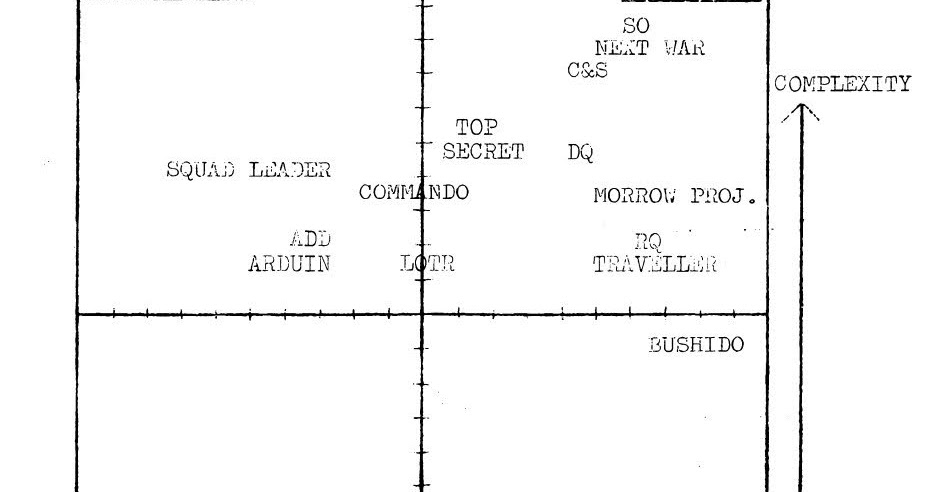I think these points are highly relevant to the idea that system matters.
I will assert, unequivocally, that Cthulhu Dark is a better RPG system both in general, and for the special case of Mythos RPGing, than CoC. Yet as you note the latter is far more widely played.
I will also assert, but a bit more hesitantly as I know I'm disagreeing with Greg Stafford, that Prince Valiant is a better system both in general, and for the special case of Arthurian/knightly romance RPGing, than Pendragon. (And to the extent that someone wants to use the Winter Phase stuff from Pendragon that can easily be folded back into Prince Valiant. We've used those charts to determine whether the knights in our Prince Valiant game have children following their marriages.)
Part of the virtue of both systems is that they're shorter and mechanically more straightforward. They also more reliably produce experiences, in play, that emulate the source material.
So why are they not more widely played?
In another thread, I stated that the main issue that many people (such as myself) have with the statement "system matters" is as follows:
"System matters" inevitably means that because it matters, some systems are better than others, and let me tell you why these systems are better ....
This, to me, is why the statement "system matters" is incredibly problematic.
Above, we see it in the way that I find worrying.
1. The statement that system matters.
2. The assertion that some system is "better" than other systems.
3. The confusion as to why the "better" system isn't played more.
For point of reference, the Cthulhu Dark "lite" system can be found
here. (Link goes to .pdf). This is the four page .pdf (one page is a graphic title, one page is clarifications, so two pages of "rules") that people are discussing. Now, before going through this, I should note that in fairness, Graham Walmsley didn't stop there, but instead produced an excellent 200 page book about it, which expands the rules (occupations, insight die) and provides a lot of information for the Director (the GM) to run games.
But looking just at the "lite" rules, most people would immediately see what the issues are with that particular rule system. It presuppose a massive number of things; a person would have to know already know all about the Lovecraft/Cthulhu mythos, would have to be well-versed in TTRPGs, and would have to fill in the details around many of the instructions - presumably with a background in other CoC TTRPGs! For example, how can one possibly understand a clarification like " even if you rolled a 6 while searching your greatuncle’s personal effects, you would not find the coordinates of Ry’leh, where Cthulhu sleeps" without a thorough background in Lovecraft already? And, again, this is a rule clarification.
Most importantly, the rules presuppose not just a knowledge of Lovecraft and TTRPGs in general, but presupposes a comfort level with this exact style of fiction/narrative-oriented RPGing. This is neither a good nor a bad thing, but it is a thing. For example, unlike the "expanded rules" in the official Cthulhu Dark, there is only one mention that you "Choose a name and occupation" and a later mention that you can roll a die if something is within your occupational expertise, and that's it. What does that mean? How is that different than something that is within human capabilities, that has the exact same die role and chance of success? Why is it that all characters are exactly the same? For certain groups that enjoy a kind of style, that can be liberating and freeing! For others, it might be confusing or annoying (as is the idea that all combats will kill you, no matter what, no roll allowed).
Fundamentally, that is the issue. No serious person would ever argue that rules don't matter, in the sense that they don't impact gameplay. Cthulhu Dark will play differently than D&D 3e with a battlemap and minis. For that matter, small changes in the rules can incentivize or change behavior at the table; this is all true and should be trivial.
But the assertion that some systems are better (or worse) tends to breed resentment at best. People have very different preferences when it comes to gaming, and it is entirely possible that the success (or failure) of certain games is proof that in practice, people are voting with their dollars. In other words, people might not have the same preference for games, so it is best to continue to hope that people make a diversity of games (and systems), and that people continue to support that diversity.

 playingattheworld.blogspot.com
playingattheworld.blogspot.com





